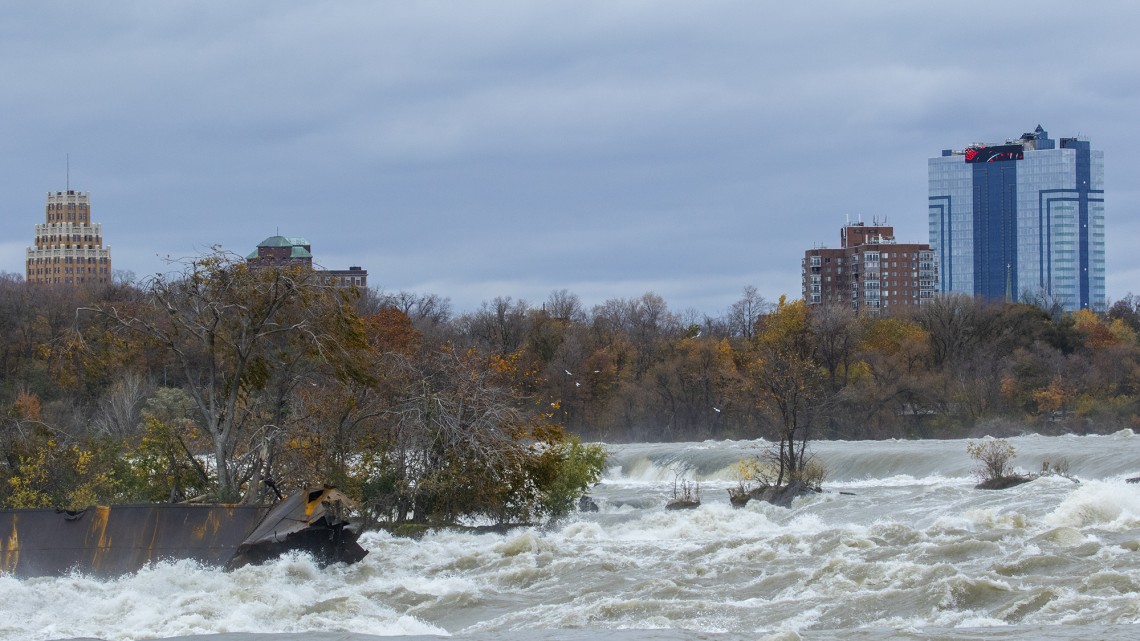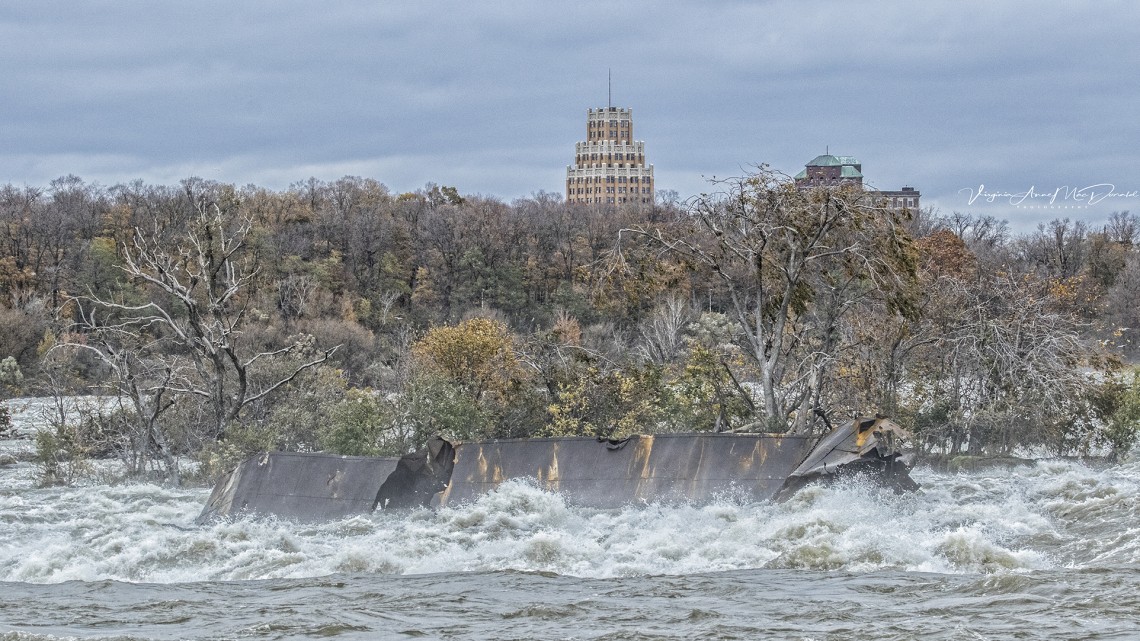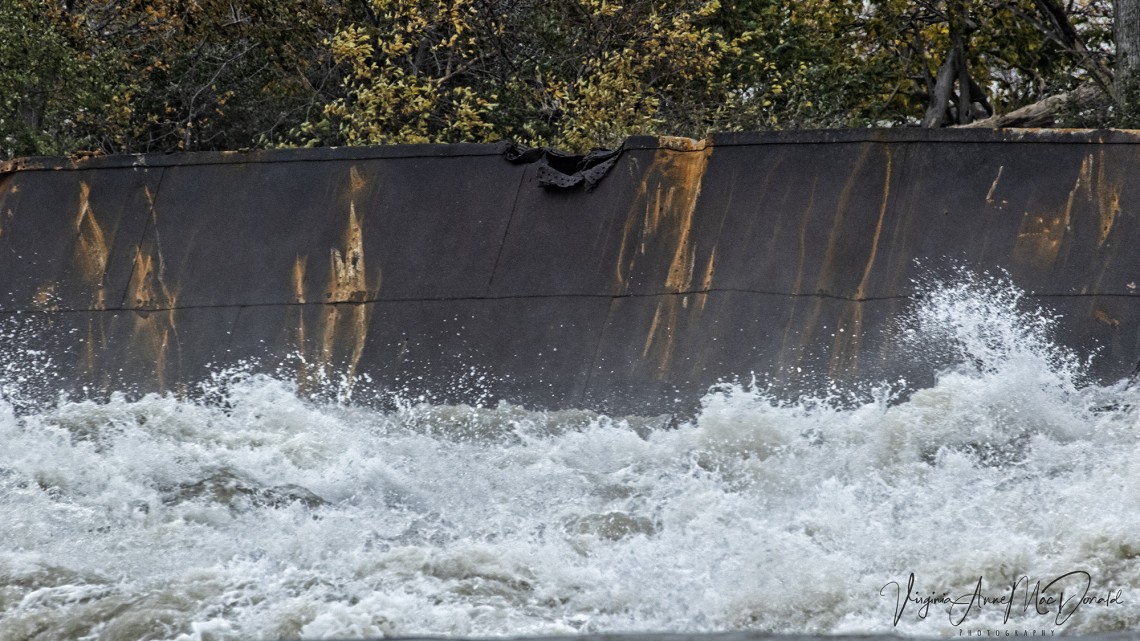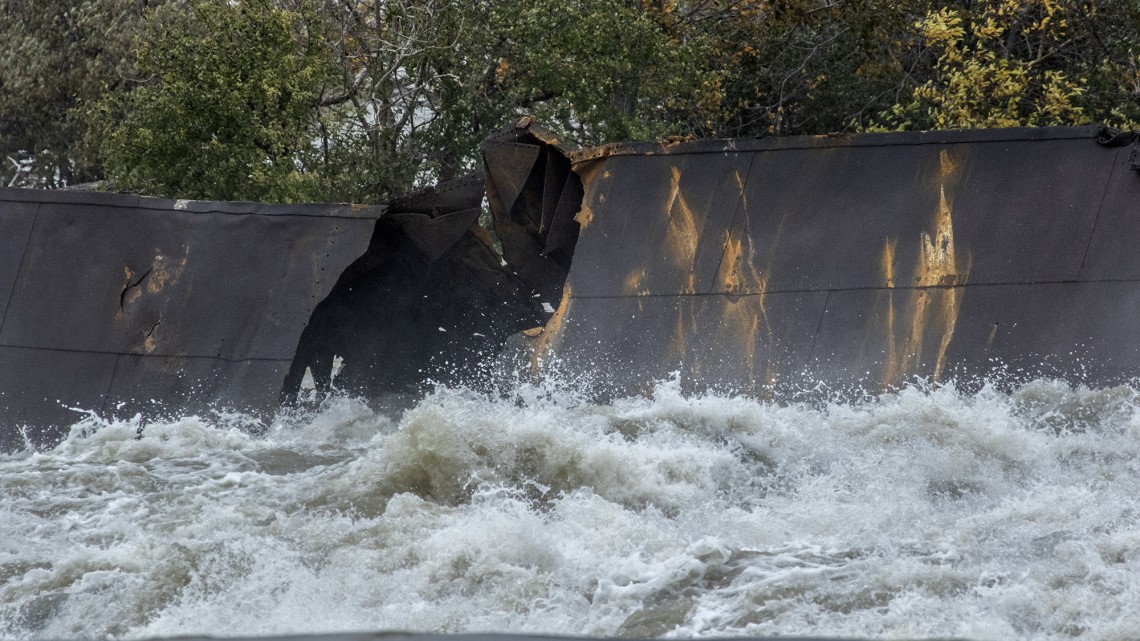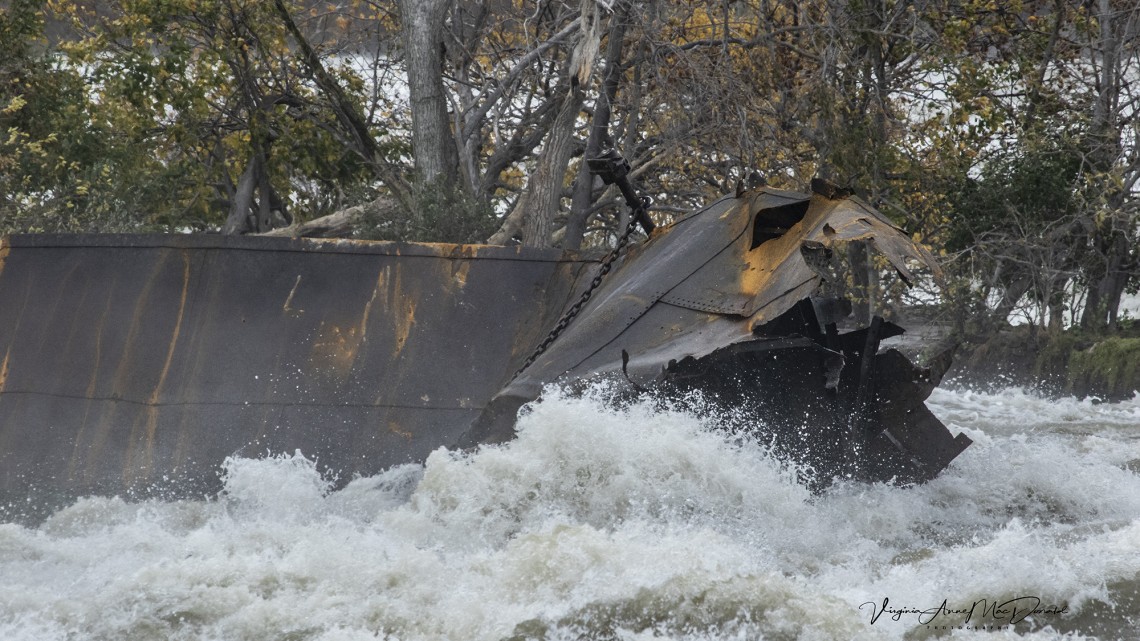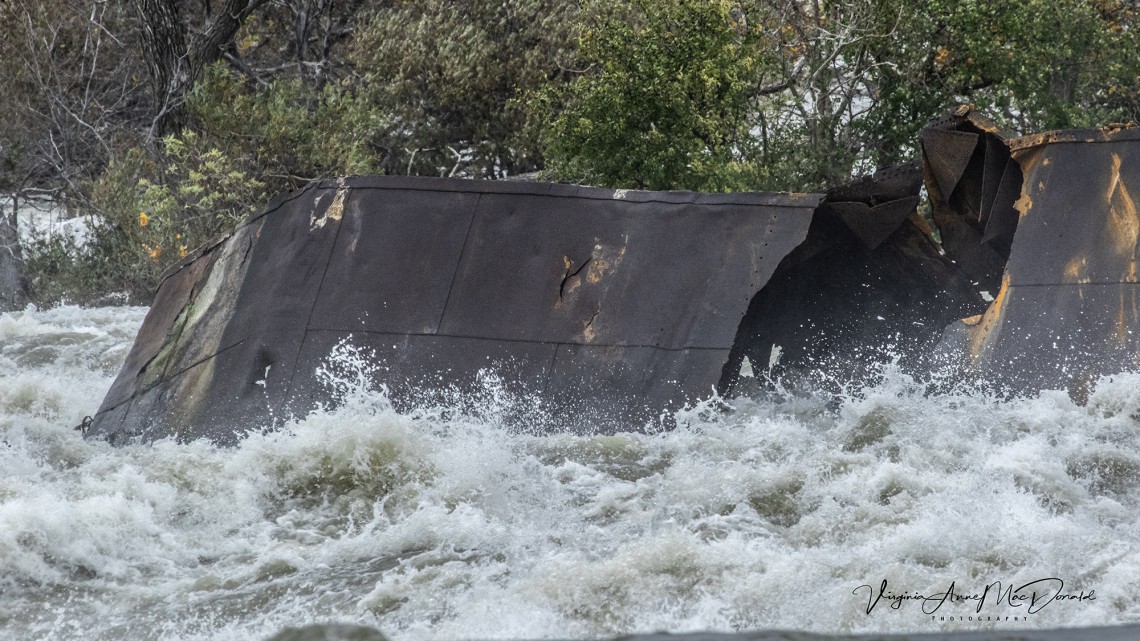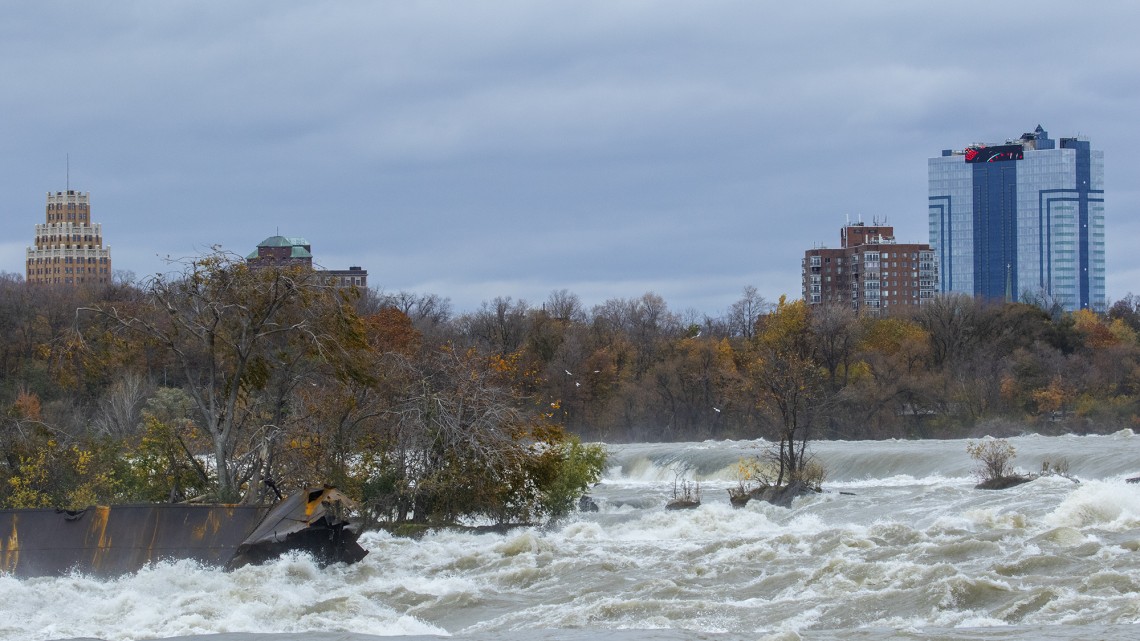The Niagara Parks Commission has been able to figure out the exact movement of the scow located in the upper Niagara River moved on Halloween night during the high winds. (Gallery pictures Virginia MacDonald)
The NPC says one end of the scow, which has been stuck in the rapids above the Horseshoe Falls for 101 years, moved 33 metres and the other end another 43 metres.
History of the Scow
The scow became lodged in the upper rapids above the falls after it broke away from its towing tug on Aug. 6, 1918.
Niagara Parks engineers and police are continuing to closely monitor the scow via security camera, but for now the commission believes it’s “stuck” in place.
If it does seem like the scow will go over the falls, authorities will be notified so that precautions for tourism can be taken.
Over the past century, the scow has become incredibly rusted. The side facing the Canadian side is now the only one that’s intact. Below, the drone footage gives an idea of the scope of the historic move.

In 1918 when the scow broke loose, two crew members on board stopped the vessel before it reached the falls, by opening its bottom dumping doors, which grounded it on some rocks around 600 metres from the edge.
It took several attempts that spanned more than a day to rescue the two men. They were eventually saved with the help of Niagara Parks police, Niagara Falls fire and police departments, the U.S. Coast Guard and a First World War veteran — William (Red) Hill Sr.
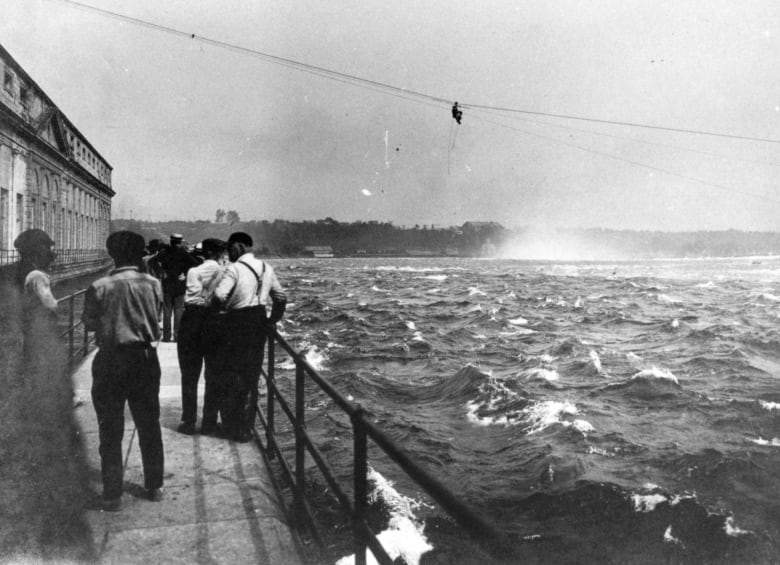
Rescuers shot a line out of a cannon from the roof of the powerhouse to the men on the day of the crash, and a heavier rope was tied to it. They tried to reel the men in via pulley, but their efforts temporarily failed when a tangle developed in the lines.
The next morning, the war veteran offered to go out and untangle the lines, which led to a heroic and historic rescue.

What is a Scow?
A scow is a type of flat-bottomed sailboat. In the 19th and early 20th centuries, scows carried cargo in coastal waters and inland waterways, having an advantage for navigating shallow water or small harbours.
To receive similar content, “Like” us on Facebook @ https://www.facebook.com/niagarabuzz.ca






